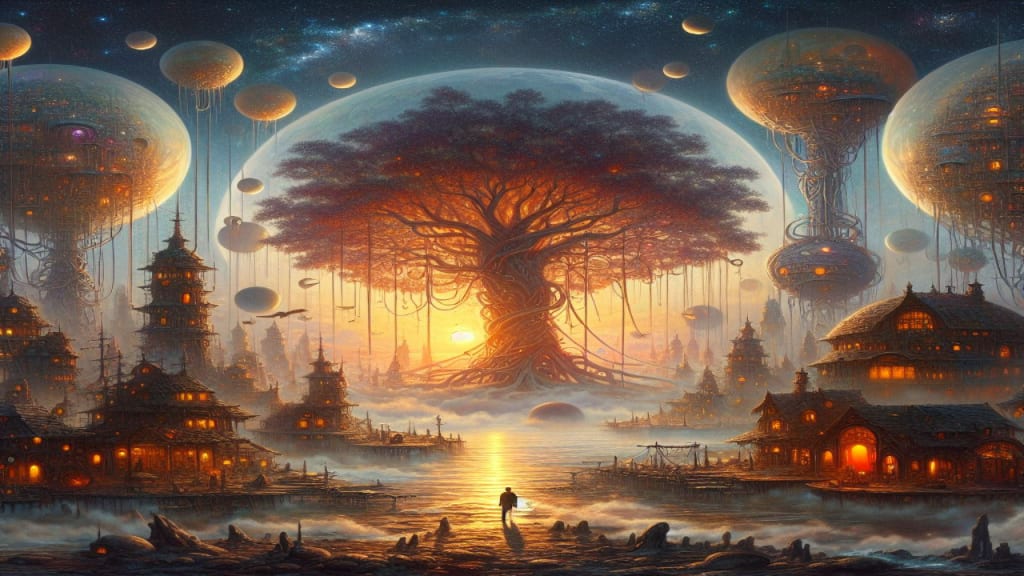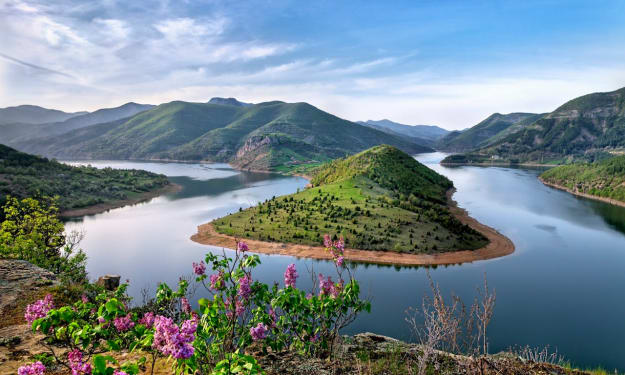
The Other World
Introduction
"The Other World" is a concept that has been explored in various contexts, from science fiction and fantasy to philosophy and religion. It often refers to a realm or reality that exists beyond our own, whether it be a parallel universe, an afterlife, or a different plane of existence.
Scientific Perspectives
In the realm of science, "The Other World" could refer to the multiverse theory, which posits the existence of an infinite number of universes, including the one we inhabit. Each of these universes may have different physical laws, dimensions, and timelines, making them distinct "other worlds".
Philosophical and Religious Views
In philosophy and religion, "The Other World" often refers to realms beyond the physical world. This could include the concept of an afterlife, spiritual realms, or planes of existence that are inaccessible to us in our current state of being. These interpretations often serve to address questions about the nature of life, death, and the purpose of existence.
Representation in Literature and Media
In literature and media, "The Other World" is a common trope, particularly in the genres of fantasy and science fiction. It allows for the exploration of alternate realities, time travel, and the supernatural. These depictions often challenge our perceptions of reality and encourage us to consider the possibilities beyond our own world.
The Other World: A Deeper Exploration
The Other World in Mythology and Folklore
In many cultures, mythology and folklore are replete with references to "The Other World". This realm is often inhabited by deities, spirits, or deceased ancestors. For instance, in Celtic mythology, the "Otherworld" is described as a realm of beauty and immortality, home to the deities and a place where time flows differently.
The Other World in Quantum Physics
Quantum physics introduces another perspective on "The Other World". The theory of quantum superposition suggests that a particle can exist in multiple states simultaneously until it is observed. This has led to the interpretation of "many-worlds" where each possible state corresponds to a different world.
The Other World in Digital Space
In the digital age, "The Other World" could also refer to virtual realities or cyberspace. These digital worlds provide an alternate space for interaction and exploration, blurring the lines between reality and fiction.
The Other World in Environmental Discourse
In environmental discourse, "The Other World" might refer to the non-human world: the world of animals, plants, and ecosystems that exist alongside human society, yet operate under different rules and structures.
The Other World: Beyond the Known
The Other World in Psychology
In psychology, particularly in the works of Carl Jung, "The Other World" could be seen as the collective unconscious. This is a realm that holds the shared experiences and archetypes common to all human beings. It’s a world that we can tap into through dreams, symbols, and certain altered states of consciousness.
The Other World in Metaphysics
Metaphysics, a branch of philosophy, often deals with questions concerning worlds beyond the physical. It explores concepts such as being, knowing, substance, cause, identity, time, and space. "The Other World" in this context could be a realm that transcends physicality and temporality.
The Other World in Socio-Political Context
"The Other World" can also be a term used in socio-political contexts to refer to societies or cultures that are significantly different from one’s own. It underscores the diversity of human experiences and worldviews across different geographical and cultural landscapes.
The Other World in Technological Advancements
With advancements in technology, particularly in the field of AI, "The Other World" could also refer to the digital consciousness or artificial intelligence that might develop its own understanding and interpretation of the world.
Conclusion
In essence, "The Other World" serves as a testament to the limitless potential of human imagination and inquiry. It is a concept that continually evolves with our expanding knowledge and changing perspectives. As we venture further into the unknown, "The Other World" will continue to be a source of fascination, a challenge to our understanding, and a beacon guiding our quest for knowledge.
About the Creator
J. Revs
> A passionate and dedicated individual, I thrive on challenges and constantly set goals for myself to ensure I'm always striving to achieve my best.






Comments
There are no comments for this story
Be the first to respond and start the conversation.